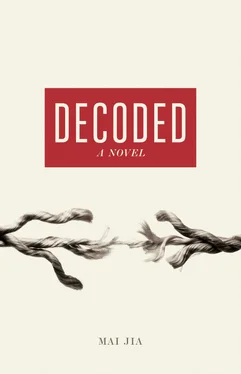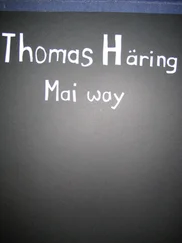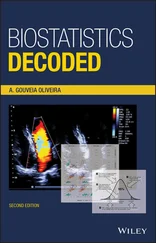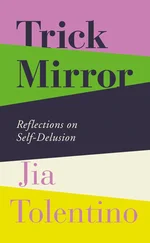Mai Jia - Decoded
Здесь есть возможность читать онлайн «Mai Jia - Decoded» весь текст электронной книги совершенно бесплатно (целиком полную версию без сокращений). В некоторых случаях можно слушать аудио, скачать через торрент в формате fb2 и присутствует краткое содержание. Год выпуска: 2014, Издательство: Allen Lane, Жанр: Современная проза, на английском языке. Описание произведения, (предисловие) а так же отзывы посетителей доступны на портале библиотеки ЛибКат.
- Название:Decoded
- Автор:
- Издательство:Allen Lane
- Жанр:
- Год:2014
- ISBN:нет данных
- Рейтинг книги:3 / 5. Голосов: 1
-
Избранное:Добавить в избранное
- Отзывы:
-
Ваша оценка:
- 60
- 1
- 2
- 3
- 4
- 5
Decoded: краткое содержание, описание и аннотация
Предлагаем к чтению аннотацию, описание, краткое содержание или предисловие (зависит от того, что написал сам автор книги «Decoded»). Если вы не нашли необходимую информацию о книге — напишите в комментариях, мы постараемся отыскать её.
Decoded — читать онлайн бесплатно полную книгу (весь текст) целиком
Ниже представлен текст книги, разбитый по страницам. Система сохранения места последней прочитанной страницы, позволяет с удобством читать онлайн бесплатно книгу «Decoded», без необходимости каждый раз заново искать на чём Вы остановились. Поставьте закладку, и сможете в любой момент перейти на страницу, на которой закончили чтение.
Интервал:
Закладка:
Well, now you can see why I was so amazed — the two paths theory that Rong Jinzhen had developed resulted in him disobeying one of the cardinal rules in cryptography. I don’t know whether he was ignorant of it, or whether he knew and decided to go ahead anyway. Given the first shock that he had caused me, I think that it is most likely that he knew and had decided to go ahead regardless — he was intentionally breaking one of our cardinal rules. When he hung the diagrams he had worked out from the history of cryptography up on his walls, he was demonstrating that he was of no mean intelligence. He was breaking the rules not because he was stupid and ignorant, but because he knew exactly what he was doing and was brave enough to go ahead with it.
When I heard his two paths theory, I didn’t criticize him the way that maybe I ought to have — I was struck with a kind of silent admiration, not unmixed with jealousy, because he was clearly way ahead of the rest of us.
At that time, he had not even spent six months in the cryptography unit.
I was very worried about him, because it seemed to me that he was in a very perilous situation. As you will now realize, Rong Jinzhen wanted to tug on the two strings that he had found — that meant that he was proposing to become entrenched behind every concept and theory in the history of cryptography, cutting his way through each of the countless layers of evolution to reach to the underlying principles. Every single layer would represent endlessly attractive theories and concepts, any one of which might lay its dead hand upon his mind and turn everything that he had done into worthless rubbish. That is why for so many years there had been one unwritten rule in cryptography: Avoid history! Everyone was perfectly well aware of the fact that there — in the history of the subject — there was no doubt any number of opportunities and pointers to help decrypt modern ciphers. But the fear of going in and not being able to find a way out overcame all other considerations — that was more important than any information to be found therein.
If I may put it in these terms, the forest that is the history of cryptography is very silent and very lonely. There are no people there to ask the way from; nobody would dare to ask for directions! This is one of the tragedies of cryptography — they have lost the mirror of history, they have lost the sense of community that comes from planting the same seeds and harvesting the same fruit. Their work is that difficult and mysterious; their souls are that lonely and alienated — they cannot even climb on the bodies of those who went on ahead. At every stage they are faced with closed doors, with mantraps, forcing them to travel by side roads, to avoid any open path. For history to have become a troublesome burden to later generations. . what an unhappy state of affairs! That is the reason why so many geniuses have been buried within the borders of cryptography — the number is appallingly high!. .
. . Okay, let me explain this in simple terms. The usual way that cryptography proceeds is by a slow process of elimination: the first thing that happens is that intelligence agents collect a load of relevant information and you then try and use this information to develop hypotheses — this feels very much like using a limitless number of keys to open a limitless number of doors. You have to design and make the keys and doors yourself — how endless the task is in practice is determined by how much material you have to work with; it is also determined by how sensitive you are to the cipher you are working with. I should explain that this is a very simple and stupid way of proceeding, but it is also the safest, the most secure, and the most effective. This is particularly the case when you are trying to decrypt a high-level cipher. Given the comparatively high success rate, this method is still in use today.
But Rong Jinzhen, as you understand, was not interested in doing it the traditional way. He had gone rushing straight into forbidden territory — in spite of the fact that he was a cryptographer he was immersing himself in the history of the field, standing on the shoulders of the giants of previous generations, and the only result to be expected from this was a terrible, frightening one. Of course if it worked, if he was able to come and go through every trap set by cryptographers of old, that would be a genuinely unbelievably impressive achievement. At the very least he would be able to narrow the focus of his search. Say for example that if there were 10,000 little byroads, he might be able to eliminate one half by this process — maybe less. The number that he would be able to eliminate would determine the prospect of success for his approach. That would decide how feasible it would be to put his two path theory into practice. To tell the truth, the success rate for such a thing was so low that very few people tried it and the ones that had succeeded were as rare as morning stars. In the world of cryptography, there would only be two types of people prepared to run so great a risk. One would be a genius, a real genius, and the other would be a lunatic. A lunatic is afraid of nothing, because he does not understand that the thing is genuinely frightening. A genius is afraid of nothing, because he knows he is armed with unusual weapons. Once he has made up his mind to the task, any difficult or dangerous obstacle can be overcome.
To tell you the truth, at that time I was not sure if Rong Jinzhen was a genius or a lunatic, but there was one thing that I was absolutely certain of — I was not going to be surprised if he turned out to do amazing things or did nothing at all; whether he became a hero or the whole thing ended in tragedy. So when he decrypted PURPLE without a word to anyone, I was not surprised at all — I just felt a great relief on his behalf. At the same time I was so impressed I really felt like getting down on my knees and kowtowing to him.
I should also explain that after Jinzhen cracked PURPLE, we discovered that all the suggestions that Jan Liseiwicz had been sending him for how to decrypt it were completely wrong. That means that we were very lucky that right from the beginning, the team working on deciphering PURPLE had decided not to let him know what was going on — otherwise he might well have ended up taking completely the wrong path, in which case he would never have been able to decrypt it. There are all sorts of things where it is very difficult to sort out the rights and wrongs; originally it seemed terribly unfair that he should not be allowed to see the letters Liseiwicz was sending him, but as it turned out, it was all for the best — kind of like dropping a sesame seed and picking up a pearl. As to why Liseiwicz’s suggestions were so wrong, there seemed to be two possibilities. One is that it was intentional: he was trying to ruin our work. The other is that it was unintentional: he was making the same mistakes in his own attempts to decrypt PURPLE. Given the situation as we understood it then, it seemed like the second option was the most likely, because he kept telling us that PURPLE was impossible to decrypt. .
[To be continued]
PURPLE had been cracked!
Rong Jinzhen did it!
It goes without saying that in the weeks and months that followed, this mysterious young man reaped enormous rewards for what he had achieved. It did not matter that he was as solitary as before — living alone, working alone; it did not matter that he carried on reading his novels, playing chess with people, interpreting their dreams, saying little, impassive in company, not caring who he was speaking to — he was absolutely the same as he had always been. The difference was how everyone else felt about him, which had undergone a complete revolution — now everyone believed in his genius, his abilities and his luck.
Читать дальшеИнтервал:
Закладка:
Похожие книги на «Decoded»
Представляем Вашему вниманию похожие книги на «Decoded» списком для выбора. Мы отобрали схожую по названию и смыслу литературу в надежде предоставить читателям больше вариантов отыскать новые, интересные, ещё непрочитанные произведения.
Обсуждение, отзывы о книге «Decoded» и просто собственные мнения читателей. Оставьте ваши комментарии, напишите, что Вы думаете о произведении, его смысле или главных героях. Укажите что конкретно понравилось, а что нет, и почему Вы так считаете.












